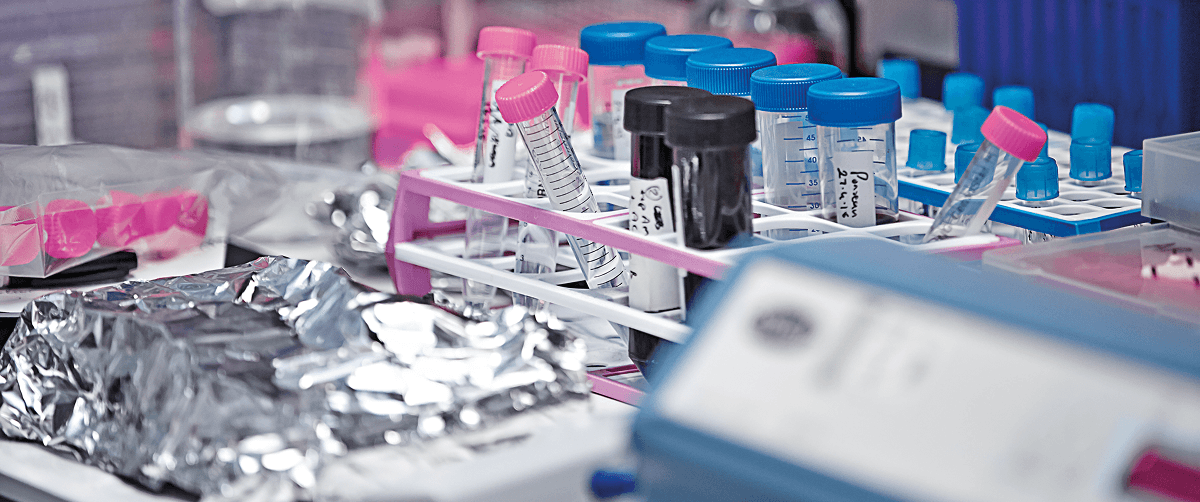
From studying the biology of breast cancer cells in the lab to leading clinical trials testing cutting-edge treatments, our researchers are working hard to ensure more women survive breast cancer. Below are some examples of what our researchers are doing right now.
At Queen’s University Belfast, Dr Kienan Savage is identifying drugs that may make tumours more susceptible to immunomodulatory treatments. His research is improving our understanding of the biological and immune responses to treatment, which can help us identify new biomarkers of disease and potential new drug targets for certain breast cancers.
Some people have a faulty version of a gene called BRCA1, which increases their risk of breast, ovarian and other types of cancer. In Birmingham, Professor Jo Morris is studying this gene to find out more about its role in the development of cancer. Understanding this process could help doctors identify people who are more likely to develop cancer, so they can choose to take part in regular screening programmes that monitor their condition. It could also help us find out why treatments sometimes stop working, enabling doctors to match people to the best treatment for them.
Learn more about the discovery of BRCA1
Professor Jason Carroll leads a group at the Cancer Research UK Cambridge Institute, and together they're investigating how we can overcome treatment resistance in endocrine-resistant breast cancer. By identifying the biological changes that lead to endocrine resistance and metastatic disease, his group hopes to gain insight into how we might be able to therapeutically intervene in these processes.
In Sheffield, Dr Elena Rainero is using imaging-based techniques explore how cancer cells hijack the extracellular matrix, a network of proteins that surrounds them, as an alternative nutrient source to help them survive when their environment becomes depleted. By understanding how cancer cells use the extracellular matrix, future research can focus on developing therapies to intervene in this process. This would prevent cancer cells from getting the nutrients they need to grow.
Read more about Dr Rainero's research

Thanks to research, we've helped change the outlook for women with breast cancer.

Meet people like Margaret who have experienced first-hand how our research is making a difference. The life-saving research we do wouldn't be possible without your support.
Want to find more information about our research or breast cancer?